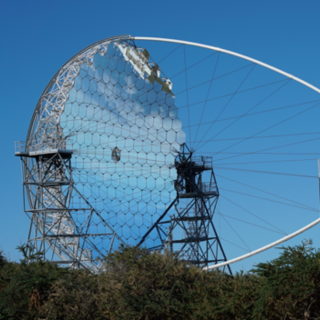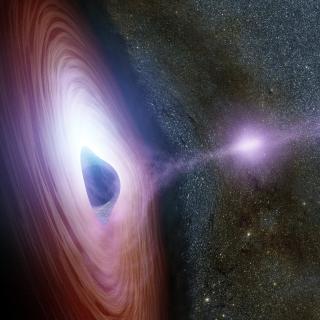Bibcode
Ansoldi, S.; Antonelli, L. A.; Arcaro, C.; Baack, D.; Babić, A.; Banerjee, B.; Bangale, P.; Barres de Almeida, U.; Barrio, J. A.; Becerra González, J.; Bednarek, W.; Bernardini, E.; Berse, R. Ch.; Berti, A.; Besenrieder, J.; Bhattacharyya, W.; Bigongiari, C.; Biland, A.; Blanch, O.; Bonnoli, G.; Carosi, R.; Ceribella, G.; Chatterjee, A.; Colak, S. M.; Colin, P.; Colombo, E.; Contreras, J. L.; Cortina, J.; Covino, S.; Cumani, P.; D'Elia, V.; Da Vela, P.; Dazzi, F.; De Angelis, A.; De Lotto, B.; Delfino, M.; Delgado, J.; Di Pierro, F.; Domínguez, A.; Dominis Prester, D.; Dorner, D.; Doro, M.; Einecke, S.; Elsaesser, D.; Fallah Ramazani, V.; Fattorini, A.; Fernández-Barral, A.; Ferrara, G.; Fidalgo, D.; Foffano, L.; Fonseca, M. V.; Font, L.; Fruck, C.; Gallozzi, S.; García López, R. J.; Garczarczyk, M.; Gaug, M.; Giammaria, P.; Godinović, N.; Guberman, D.; Hadasch, D.; Hahn, A.; Hassan, T.; Hayashida, M.; Herrera, J.; Hoang, J.; Hrupec, D.; Inoue, S.; Ishio, K.; Iwamura, Y.; Konno, Y.; Kubo, H.; Kushida, J.; Lamastra, A.; Lelas, D.; Leone, F.; Lindfors, E.; Lombardi, S.; Longo, F.; López, M.; Maggio, C.; Majumdar, P.; Makariev, M.; Maneva, G.; Manganaro, M.; Mannheim, K.; Maraschi, L.; Mariotti, M.; Martínez, M.; Masuda, S.; Mazin, D.; Mielke, K.; Minev, M.; Miranda, J. M.; Mirzoyan, R.; Moralejo, A.; Moreno, V.; Moretti, E.; Neustroev, V.; Niedzwiecki, A. et al.
Bibliographical reference
The Astrophysical Journal Letters, Volume 863, Issue 1, article id. L10, 10 pp. (2018).
Advertised on:
8
2018
Citations
196
Refereed citations
154
Description
A neutrino with energy ˜290 TeV, IceCube-170922A, was detected in
coincidence with the BL Lac object TXS 0506+056 during enhanced
gamma-ray activity, with chance coincidence being rejected at
˜3σ level. We monitored the object in the very-high-energy
(VHE) band with the Major Atmospheric Gamma-ray Imaging Cherenkov
(MAGIC) telescopes for ˜41 hr from 1.3 to 40.4 days after the
neutrino detection. Day-timescale variability is clearly resolved. We
interpret the quasi-simultaneous neutrino and broadband electromagnetic
observations with a novel one-zone lepto-hadronic model, based on
interactions of electrons and protons co-accelerated in the jet with
external photons originating from a slow-moving plasma sheath
surrounding the faster jet spine. We can reproduce the multiwavelength
spectra of TXS 0506+056 with neutrino rate and energy compatible with
IceCube-170922A, and with plausible values for the jet power of ˜
{10}45-4× {10}46 {erg} {{{s}}}-1.
The steep spectrum observed by MAGIC is concordant with internal
γγ absorption above ˜100 GeV entailed by photohadronic
production of a ˜290 TeV neutrino, corroborating a genuine
connection between the multi-messenger signals. In contrast to previous
predictions of predominantly hadronic emission from neutrino sources,
the gamma-rays can be mostly ascribed to inverse Compton upscattering of
external photons by accelerated electrons. The X-ray and VHE bands
provide crucial constraints on the emission from both accelerated
electrons and protons. We infer that the maximum energy of protons in
the jet comoving frame can be in the range ˜1014 -
1018 eV.
Related projects

Particle Astrophysics
The members of the Particle Astrophysics Group of the IAC participate actively in three large international collaborations of high-energy astrophysics: AMS-02 (Alpha Magnetic Spectrometer), the Cherenkov radiation telescopes MAGIC I and II and the Cherenkov Telescope Array Observatory ( CTAO). We also participate in the ASTRI mini-array, the gamma
Mónica Luisa
Vázquez Acosta

Variability in Active Galactic Nuclei: Multifrecuency Studies
Active Galactic Nuclei (AGN) are characterized by a strong emission coming from a very compact region (only few pcs) at the galaxy center. Blazars form a class of AGN, characterized by high luminosity in a broad frequency range, from radiofrequencies to high energies (X-rays and γ -rays), as well as extreme variability and high polarization at
José Antonio
Acosta Pulido